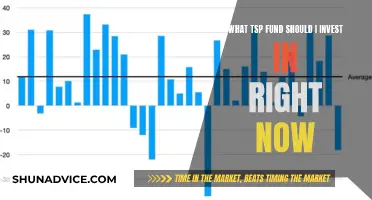
Private investment funds, also known as private funds, are a type of pooled investment vehicle (PIV) that is managed by professional fund managers. They are typically structured as limited partnerships, with a legal entity made up of at least one general partner and at least one limited partner. Private funds can include hedge funds, private equity funds, real estate funds, and venture capital funds, each with distinct investment strategies and risk profiles. These funds are not open to retail investments, allowing them to invest in high-risk assets that public fund managers do not have access to. Private investment funds are often used by high-net-worth individuals and institutions to increase diversification, reduce portfolio volatility, and achieve higher returns.
What You'll Learn
- Private investment funds are a type of pooled investment vehicle (PIV)
- They are run by professional fund managers
- Examples include hedge funds, private equity funds, and venture capital funds
- They are exempt from registration as investment companies
- They are considered riskier investments than public funds

Private investment funds are a type of pooled investment vehicle (PIV)
There are several types of private investment funds, each with its own investment strategy and risk profile. Examples include hedge funds, private equity funds, real estate funds, and venture capital funds.
Private equity funds, for instance, are pools of capital that are invested in companies with high growth potential or mature businesses, with the aim of generating a high rate of return. They are typically managed by a general partner (GP), usually the private equity firm that established the fund, who makes all the fund's management decisions.
Venture capital funds, on the other hand, tend to invest in small, early-stage, and emerging businesses that have limited access to other forms of capital. These types of funds can offer investors the opportunity to gain exposure to equity in companies they would not normally have access to.
Private investment funds are considered riskier than public funds due to their limited liquidity, longer return timelines, limited transparency, and reduced regulatory oversight. However, they offer several advantages, such as the potential for higher returns, portfolio diversification, and access to specialised opportunities.
Mutual Fund Taxation: What Investors Need to Know
You may want to see also

They are run by professional fund managers
Private investment funds are run by professional fund managers, also known as fund advisers. These managers can be individuals or management companies, and they are responsible for formulating the fund's investment strategy, pitching it to investors, and closing investors into the fund.
Fund advisers are also responsible for conducting due diligence on potential investments, negotiating and closing those investments, and managing the day-to-day operations of the fund, including financial reporting, tax and audit responsibilities, and investor relations. To carry out these tasks, fund advisers may employ staff and contractors, such as a fund administrator.
The legal term for these fund managers is "fund adviser," and they are typically investment firms such as venture capital firms, private equity firms, or hedge fund advisers. The fund adviser's role is critical in ensuring compliance with regulations and maintaining investor confidence.
The SEC and state securities agencies regulate the activities of fund advisers, and depending on the amount of assets and types of funds they manage, a fund adviser may be classified as either an exempt reporting adviser (ERA) or a registered investment adviser (RIA).
It is important to note that private investment funds are not open to retail investments, and the number and type of investors that can own shares in the fund are limited. In the United States, under the Investment Company Act of 1940, different types of private funds have specific investment limits. For example, a traditional 3(c)(1) fund can have up to 100 accredited investors, while a 3(c)(7) fund can have a soft limit of around 2,000 qualified investors.
The definitions of qualified and accredited investors are determined by individual wealth tests. Accredited investors typically need to have a net worth of over $1 million, excluding their primary residence, and/or an annual income of $200,000 for an individual or $300,000 for a couple. Qualified investors, on the other hand, must hold assets exceeding $5 million.
By maintaining these requirements and limits, private investment funds can operate with more freedom and flexibility compared to public funds. They can explore illiquid investments and employ aggressive trading strategies that would typically be considered too risky for public funds. Additionally, private investment funds are not required to publicly report their investment positions or returns, allowing them to maintain privacy and avoid tipping off the market about their strategies.
Pharma Fund Investment: Should You Continue?
You may want to see also

Examples include hedge funds, private equity funds, and venture capital funds
Private investment funds are a type of pooled investment vehicle (PIV) run by professional fund managers. They are the backbone of the private markets and are generally regarded as riskier investments than public funds. Examples of private funds include hedge funds, private equity funds, and venture capital funds. Each type of private fund has a distinct investment strategy and risk profile.
Hedge funds are a type of private fund with an investment strategy distinct from the leveraged buyout and venture capital strategies that characterize private equity and venture capital funds, respectively. Hedge funds pursue a variety of high-risk strategies that together "hedge" against the failure of individual high-risk bets. They are generally more aggressive, riskier, and more exclusive than mutual funds. Their managers have the freedom to invest in a wide variety of assets, including public securities, private equities, financial instruments, and so-called "SWAG" assets (silver, wine, art, and gold). Hedge funds often use aggressive trading methods, such as leveraged trades, market arbitrage, and trading based on quantitative analysis. They charge relatively high fees, typically following the "2-and-20" rule, which includes a 2% management fee and a 20% performance fee.
Private equity funds are managed by private equity firms, which act as advisers. These funds are similar to mutual funds or hedge funds in that they pool together money from investors. However, private equity firms often focus on long-term investment opportunities, typically with an investment time horizon of 10 or more years. A common investment strategy for private equity funds is to take a controlling interest in an operating company and actively engage in its management to increase its value. Private equity funds are typically only open to accredited investors and qualified clients, such as institutional investors and high-income individuals.
Venture capital funds pool money to invest in high-growth private companies, commonly known as startups. They offer opportunities for investors to gain exposure to equity in companies they might not otherwise know about or be able to access. Venture capitalists invest in good industries, structuring their deals to minimize risk and maximize returns. They play a crucial role in meeting the needs of institutional investors looking for high returns, entrepreneurs seeking funding, and investment bankers looking for companies to sell.
High-Risk, High-Yield: Exploring Corporate Bond Investment Funds
You may want to see also

They are exempt from registration as investment companies
Private investment funds are exempt from registration as investment companies if they meet the requirements outlined in either Section 3(c)(1) or Section 3(c)(7) of the Investment Company Act of 1940. This distinction is what differentiates a "private" fund from a "public" fund or registered investment company.
Under Section 3(c)(1), a private fund must have no more than 100 accredited investors, each with a net worth of over $1 million excluding their primary residence, or $200,000 in annual income for an individual and $300,000 for a couple. Additionally, these funds must not make a public offering of their securities.
Section 3(c)(7) funds, on the other hand, can have up to 2,000 qualified investors, each with assets in excess of $5 million. Similar to 3(c)(1) funds, they must also refrain from making public offerings of their securities.
By adhering to these restrictions, private investment funds benefit from reduced regulatory and legal requirements compared to publicly traded funds. This freedom allows them to explore illiquid investments and aggressive trading strategies that may be too risky for public funds. The lack of public reporting requirements also enables private funds to maintain confidentiality and avoid disclosing their investment positions to competitors.
It is important to note that while private investment funds are exempt from certain SEC registration requirements, they may still be subject to state investment adviser registration rules, as outlined by the North American Securities Administrators Association (NASAA) Model Rule. This rule provides an exemption from state registration for "private fund advisers," but it imposes additional conditions, such as limiting the number of investors and requiring the filing of Form ADV and payment of relevant state fees.
Overall, the ability of private investment funds to remain exempt from registration as investment companies grants them greater flexibility and confidentiality in their investment strategies, contributing to their popularity among qualified investors.
Smartly Invest 50 Lakhs in Mutual Funds: A Beginner's Guide
You may want to see also

They are considered riskier investments than public funds
Private investment funds are considered riskier than public funds due to a combination of factors, including regulatory oversight, liquidity, transparency, and market risks.
Firstly, private investment funds are subject to less regulatory oversight than public funds. In the United States, the Securities and Exchange Commission (SEC) regulates both private and public funds, but the level of scrutiny and controls applied to public funds is notably higher. The reduced regulatory burden on private funds allows them to pursue riskier investment strategies and utilize more complex legal structures. This lack of stringent regulation also contributes to limited transparency, as private funds are not required to publicly disclose their investment positions or returns, making it challenging for potential investors to access information for informed decision-making.
Secondly, private investment funds often deal with illiquid investments, which can pose challenges during economic downturns. The term of a private investment fund can range from 3 to 10 years, and the markets for these private investment assets may be small or non-existent during the fund's lifetime. Consequently, fund managers may struggle to liquidate assets when facing financial stress or rising redemptions. Private equity investors are expected to commit their funds for several years, and the holding periods for some investments can be even longer, restricting their ability to access their investments promptly.
Additionally, private investment funds often have high investment minimums, which can amplify gains but also magnify losses. The high barrier to entry requires a substantial amount of capital for a minimum investment, which may result in significant losses if the investment underperforms.
Furthermore, private investment funds often invest in new companies or startups, which carry a higher degree of market risk. Many of these companies are unproven, and there is no guarantee that they will succeed or grow as expected. The failure rate among these ventures is relatively high, and even a single unsuccessful investment within a portfolio can lead to significant losses for investors.
Overall, the combination of reduced regulatory oversight, liquidity constraints, high investment minimums, and market risks associated with early-stage companies contributes to the perception of private investment funds being riskier than their public counterparts.
Vida Capital Fund: A Smart Investment Strategy
You may want to see also
Frequently asked questions
A private investment fund is a type of pooled investment vehicle (PIV) run by professional fund managers. Private investment funds are not open to retail investments and are typically less regulated than public funds.
Examples of private investment funds include hedge funds, private equity funds, real estate funds, and venture capital funds.
Private investment funds can provide investors with access to specialised opportunities and the potential for higher returns. They also offer portfolio diversification due to their longer investment horizons and lower correlation to cyclical trends in public equities markets.
Private investment funds are generally considered riskier than public funds due to their limited liquidity, longer return timelines, limited transparency, and limited regulatory oversight.







